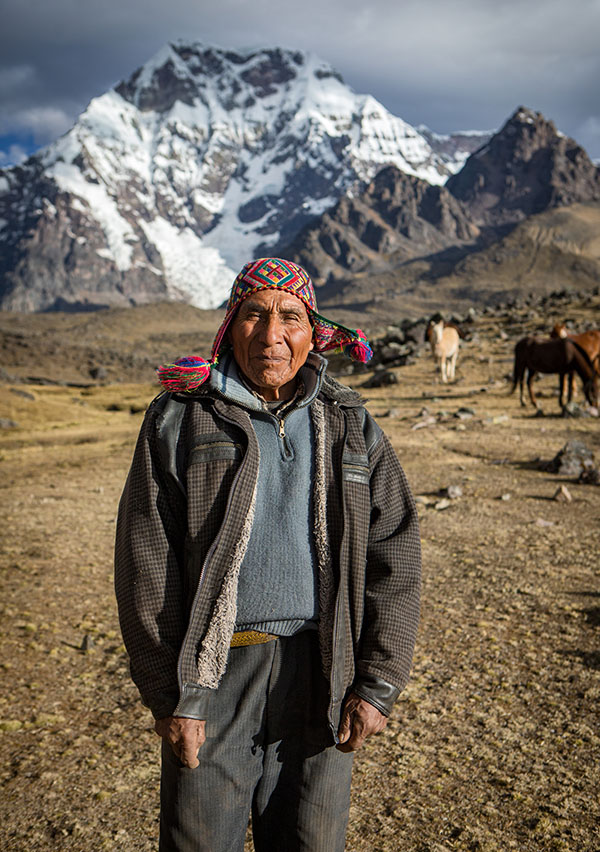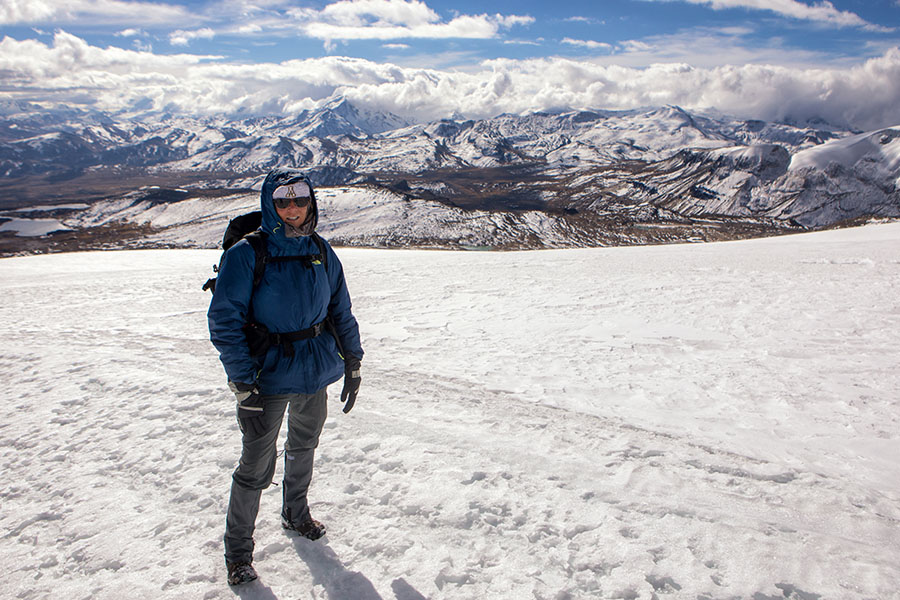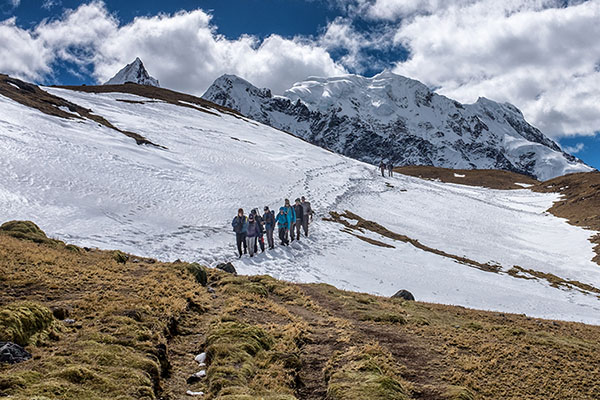
Don Severino Crispin Huanca, a Peruvian citizen scientist, poses with Ausangate Mountain in the background. He and his family members gather weather data to assist Dr. Baker Perry, graduate program director and professor in Appalachian’s Department of Geography and Planning, in research to understand climate change in their region. Photo by Marie Freeman
BOONE, N.C. — While trekking in Peru during a summer 2018 study abroad with Appalachian State University students and professor Dr. Baker Perry, a pivotal moment for me came as we gathered at the base of Ausangate Mountain, preparing to begin our hike of the Jampa Pass — an elevation of 5,071 meters, or roughly 16,000 feet.
One of our trail guides, Don Severino Crispin Huanca, who said he has made the trek many times since he was a child, described his eyewitness account of the Ausangate glacier’s recession over the last 69 years and the impact this has had on the villages downstream. He said the glacier meltwater is part of the villages’ water supply, but this is not always a dependable source.
Perry provided further explanation: “As the glaciers have begun to melt faster, the water supply increases initially, but then there is an adjustment that occurs, and there is less water.”
Crispin’s words became a tangible tie-in to the research Appalachian students and professors are doing to understand climate change and the effects it has on populations worldwide.
A Peru study abroad becomes a metaphor for the Appalachian Experience
What do you think?
Share your feedback on this story.
About Appalachian State University
As a premier public institution, Appalachian State University prepares students to lead purposeful lives. App State is one of 17 campuses in the University of North Carolina System, with a national reputation for innovative teaching and opening access to a high-quality, cost-effective education. The university enrolls more than 21,000 students, has a low student-to-faculty ratio and offers more than 150 undergraduate and 80 graduate majors at its Boone and Hickory campuses and through App State Online. Learn more at https://www.appstate.edu.





![How NCInnovation Is Rethinking Economic Development in North Carolina [faculty featured]](/_images/_posts/2026/02/rethinking-economic-development-600x400.jpg)







